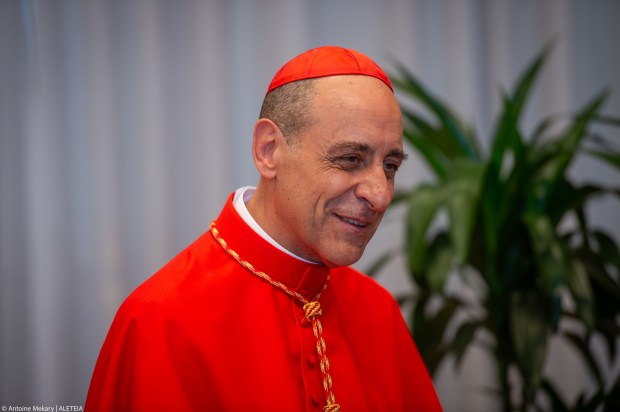Throughout this year, certain figures have played especially important or prominent roles in Vatican affairs. Here we highlight several of them.
Cardinal Parolin, guarantor of moderation and unity
The Pope's Secretary of State gained visibility during 2023 as the "premier diplomat." With tact and moderation, he has helped during certain crises, notably in the context of the war in the Holy Land. Shortly after the Hamas attack on October 7, his successive visits to the embassies of Israel and Palestine demonstrated the Pope's concern for the two populations involved.
From Lourdes to Senegal, and also Dubai, where he represented Pope Francis, who ended up being unable to attend COP28, Cardinal Pietro Parolin has multiplied his international travels. His firm stance on the German Synod has also strengthened his position as guarantor of a certain institutional balance in the face of the risk of polarization in the Catholic Church.
Cardinal Fernandez, a pastoral profile at the Doctrine of the Faith
A close friend of Pope Francis, Argentinian Víctor Manuel Fernández took up his post as Prefect of the Dicastery for the Doctrine of the Faith in September. This has been like a small revolution in the Vatican. The man whom the Pope immediately made a cardinal has become the “guardian of dogma,” a post that Cardinal Ratzinger, the future Benedict XVI, held from 1981 to 2005.
The style of this 61-year-old prefect contrasts with that of his predecessors. He is one of the people who help Pope Francis pen his official documents, and he intends to drive forward the theological and pastoral renewal desired by the Pontiff. Since his arrival, the dicastery has responded publicly to sensitive questions, explaining, for example, that single mothers can receive Holy Communion.
Cardinal Ambongo, the voice of Africa
Cardinal Fridolin Ambongo Besungu was the architect of Pope Francis' visit to the Democratic Republic of Congo from January 31 to February 3. This trip made it possible for the Pontiff to go and console a people suffering violence and poverty.
Supporting the Pope's message against corruption, the 63-year-old cardinal showed his determination to fight this scourge, even if it meant publicly reprimanding the country's president.

The Archbishop of Kinshasa also made his mark during the October Synod. Asked about the assembly's ability to make progress on sensitive issues such as the female diaconate, the marriage of priests, and the acceptance of homosexuals, he made his voice heard by affirming that the Synod would not respond to specific problems, but would define "the new way" for the Church to tackle them.
Cardinal Hollerich, the Synod's compass
Cardinal Jean-Claude Hollerich, the Synod on Synodality’s relator general, was one of the key figures at the meeting of the Synod at the Vatican in October. Sitting at Pope Francis' table, the Archbishop of Luxembourg stimulated the assembly's reflection, setting the course and deadlines for the work that will conclude in October 2024.
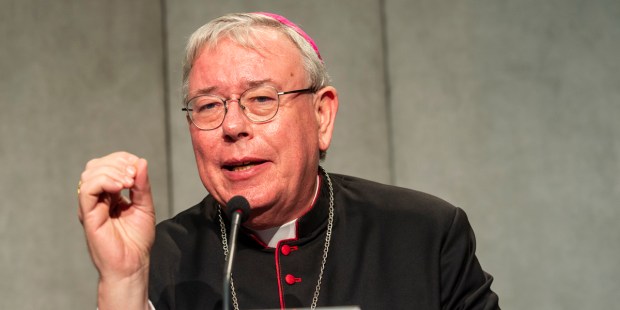
"We are well aware that this Synod will be evaluated on the basis of the perceptible changes that will result from it," warned the polyglot Jesuit whom the Pope created a cardinal in 2019. In 2024, he will have the task of bringing to fruition this consultation process launched worldwide in 2021 to make the Church more participative and welcoming, less centralized and clerical.
Cardinal Aveline, the man who took the Pope to France
"Hello Marseille, hello France!" Behind Pope Francis' words to the thousands of French faithful gathered at Marseille's Velodrome stadium lies the work of the city's archbishop, Jean-Marc Aveline. Although the Argentine pontiff had been reluctant to visit France, the native of Sidi Bel Abbès was able to convince him to go to Marseille for a meeting on migration in the Mediterranean, but also to greet the Church in France.
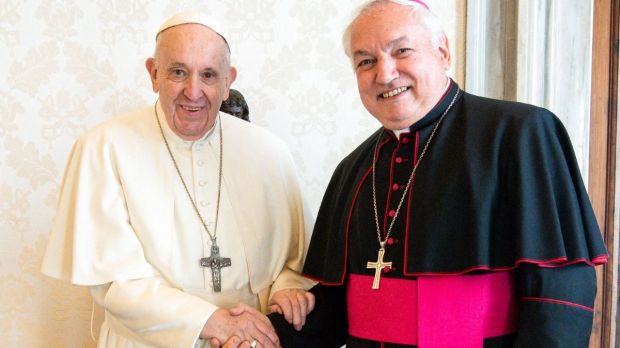
The cordiality of this 64-year-old man, who has taken up learning Italian, his missionary enthusiasm and his cautious approach to sensitive issues are beginning to gain him influence beyond France. At the Synod in October, he was a member of the commission responsible for overseeing the final document. More significantly, he was one of the main architects of the letter to the People of God drafted at the end of the Synod.
Cardinal Zuppi, a "mission of peace" without concrete results
Cardinal Matteo Zuppi is the president of the Italian Bishops' Conference and a long-standing participant in several missions of mediation on behalf of the Community of Sant'Egidio. This past spring, the Pope entrusted him with a delicate mission as special envoy for peace in Ukraine.

First he went in early June to Kiev, where he met President Volodymyr Zelensky in person. The Italian cardinal then traveled to Moscow to meet Patriarch Kirill and the Commissioner for Children's Rights, to plead the cause of Ukrainian children deported to Russia. Cardinal Zuppi then traveled to Washington, where he had talks with President Joe Biden, and then on to Beijing. However, this mission of good produced few tangible results. "The mechanism put in place following Cardinal Zuppi's mission is being fine-tuned, which promises better results," said Cardinal Parolin in early December on the subject of the repatriation of Ukrainian miners.
Cardinal Pizzaballa, a patriarch surrounded by war
Just seven days passed between the consistory ceremony at which Pierbattista Pizzaballa became a cardinal and the Hamas terrorist attack in Israel on October 7. Since then, the Latin Patriarch of Jerusalem has been striving to bring a voice of peace to the region. Nonetheless, hatred between the Palestinians and Israelis, exacerbated by the continuing bloodshed in Gaza, is making the prospect of a political solution ever more remote.
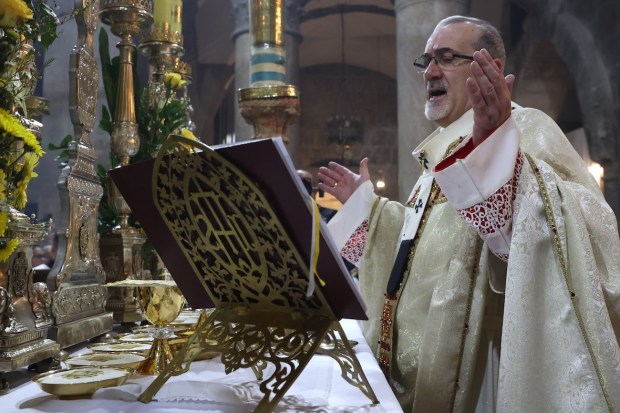
Lamenting the Israeli bombardment of Gaza, the Italian cardinal condemned the October 7 attack and demanded the release of the hostages held by Hamas, even if it meant offering himself in exchange. "I will do anything if it will lead to their release [...] My availability is absolute," he told the press in October.
The Rupnik affair gains momentum
The case of Father Marko Rupnik, a Jesuit mosaicist accused of abusing women in the years 1980-2000, was one of the thorniest issues of the year for the Pope. After a canonical visit to the Aletti center, his studio in Rome, the diocese seemed to come to the Slovenian's defense in a strongly criticized report. The actions of senior members of the Society of Jesus came under scrutiny prior to the announcement of his exclusion from the order in June.
Indeed, the Commission for the Protection of Minors reported "serious problems" in the handling of the case. The Argentine Pontiff finally lifted the statute of limitations, asking the Dicastery for the Doctrine of the Faith to open a canonical trial on October 27.
Alessandro Diddi, the arm of Vatican justice
The legitimacy of Vatican justice rests today on the shoulders of Alessandro Diddi, who has worked for the Office of the Promoter of Justice since 2013 and became its head in 2022. He sought the conviction of 10 people, including Cardinal Becciu, in the trial of the so-called “London Building” financial affair, which opened in July 2021. This led to him being targeted by the defense, who accused him of following a preconceived idea.
The lawyer is also credited with reopening the thorny “Emanuela Orlandi” case, named after the daughter of a Vatican employee who disappeared in 1983.
Cardinal George Pell, who died on January 10
Australian Cardinal George Pell died at the age of 81, five days after Benedict XVI's funeral. The former prefect of the Secretariat for the Economy was a pillar of the Curia's economic reform. The Argentine Pontiff even described him as a "genius."
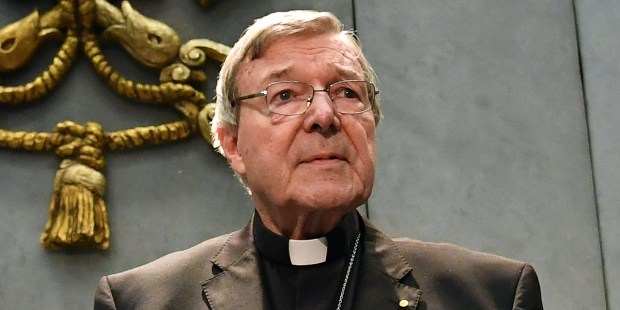
However, the cardinal (who spent almost two years in prison for sexual abuse of minors, a conviction overturned in 2020) was also considered by some to be one of the Argentine Pope's greatest adversaries.
Archbishop Gänswein, in the shadow of Benedict XVI
Archbishop Georg Gänswein was the personal secretary to Benedict XVI for almost 20 years. He found himself in the spotlight at the beginning of the year, notably with the publication of his memoirs. In them, the prefect of the Papal Household lifted the veil on his sometimes stormy relationship with Pope Francis, criticizing him for having sidelined him since January 2020, even though he saw himself as a "link" between the two pontificates. After a period of reflection, the Pope finally put an end to his duties as prefect in February, then sent him back to his home diocese in Germany in June, without any duties.
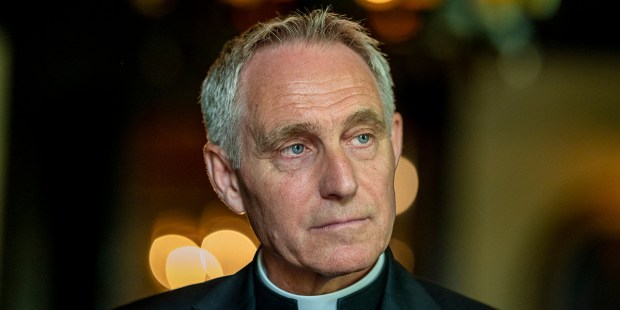
Bishop Joseph Strickland: The fall of a frontal opponent of Pope Francis
On November 11, Bishop Joseph Strickland, who had refused to resign, was relieved of the office of Bishop of Tyler, Texas, which he had held since 2012. This conservative bishop, close to former Apostolic Nuncio Carlo Maria Vigano, was one of the most outspoken opponents of Pope Francis within the American Bishops' Conference. Openly opposed to the Pope on issues ranging from liturgy to COVID vaccines, Archbishop Strickland had accused the pontiff of “undermining the deposit of faith.”
The elevation to the cardinalate of the apostolic nuncio in Washington, Archbishop Christophe Pierre, can thus be understood as an act of authority on the part of the pontiff towards a divided episcopate, some members of which are recalcitrant towards his magisterium.
Cardinal Müller, the Pope's greatest critic
The German cardinal had established himself as one of the most critical voices of Francis' pontificate since the latter withdrew him from office in 2017. In 2023, the ex-prefect of the Holy Office continued his criticism with the publication of a book in which he takes a harsh look at the workings of the Holy See, not even sparing the Pope.
In the book, he also criticized his great adversary, Cardinal Fernandez, whom he accused of torpedoing his career and whom the pontiff appointed Prefect for the Doctrine of the Faith. Critical of the Synod, but not a signatory of the dubia, the German cardinal was invited by the Pope to take part.
Sergio Alfieri, the Pope's surgeon
Sergio Alfieri not only distinguished himself as Pope Francis' surgeon, who performed the operation on the Pontiff's abdomen on June 7; he also became a spokesman during the Pope’s 10-day hospitalization at Gemelli Hospital. He held several press conferences in the hospital’s lobby, besieged by microphones and cameras. He willingly answered journalists' questions and denied false rumors such as that of a tumor. This method of communication is in stark contrast to the Argentine Pontiff's previous hospitalizations. Sergio Alfieri is also credited with the remark that Pope Francis "has 86 years on his ID," but "the face of a sexagenarian."


